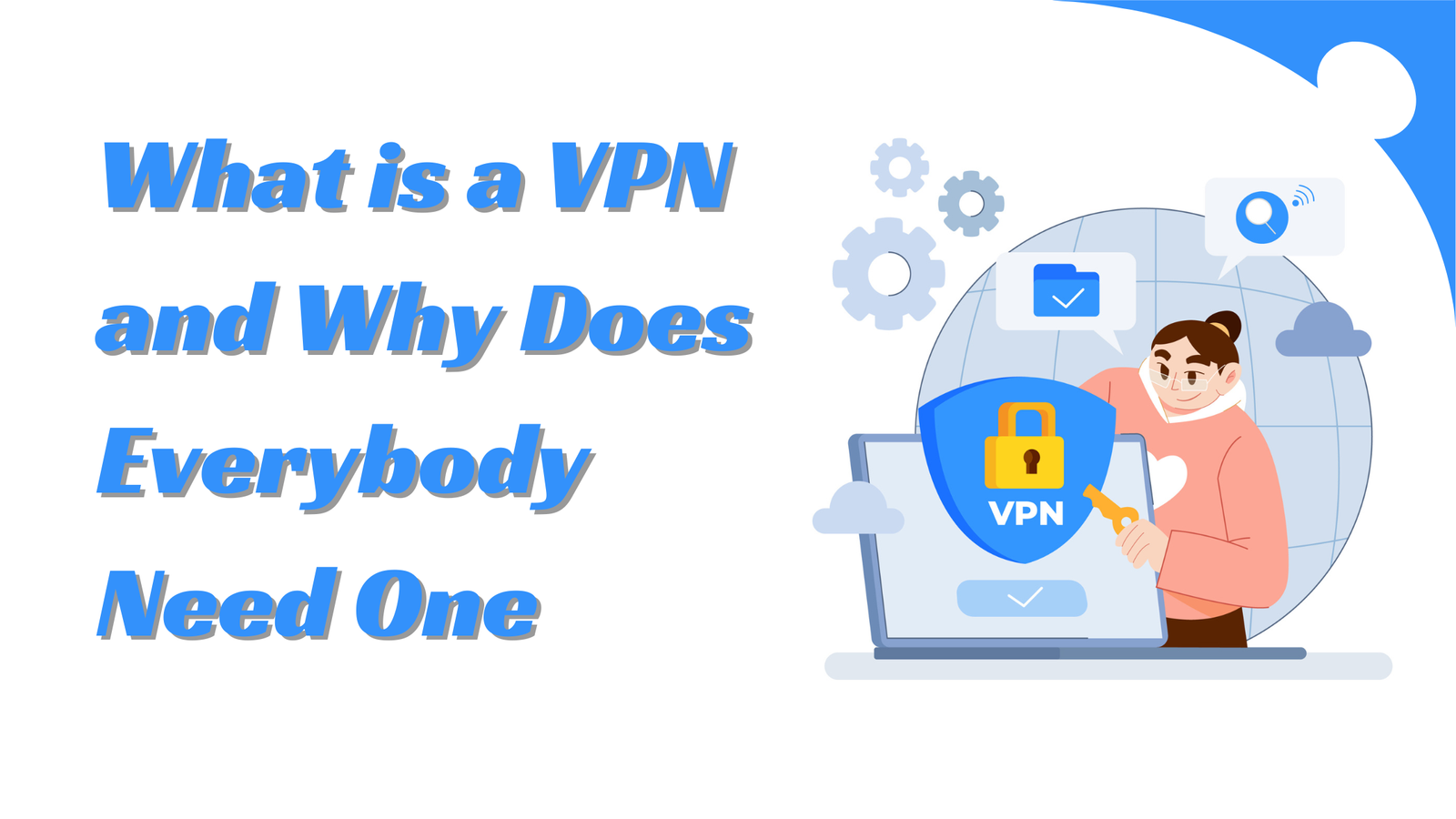What is a VPN and Why Does Everybody Need One
Most of our lives are online, so there’s an increased risk of someone snooping on our data. However, that’s where a VPN or Virtual Private Network comes in and shows its magic.
A VPN helps secure your internet connection and keeps your personal information hidden from hackers, advertisers and even your internet provider. Around 80% of people use a VPN to increase their security, highlighting the vast interest in privacy.
By using a VPN, everything that you do online remains synonymous. So, are you ready to understand what this is and how it works? Let’s get started.
What is a Virtual Private Network (VPN)?
A Virtual Private Network (VPN) is a service that allows users to create a secure connection to another network over the Internet. It works because when you use a VPN, your traffic is routed through an encrypted tunnel to keep your data from prying eyes.
This means that your online activity, such as the websites you visit and the files you download, are hidden from hackers, ISPs and third-party trackers.
So, what exactly is a VPN in simple terms? Think of it as a shield that protects your internet connection by masking your IP address and encrypting your data. With it, traffic goes through a secure server rather than directly connecting to the websites. This makes it nearly impossible for anyone to trace your activities or steal sensitive information.
Why Does Everyone Need a VPN?
The reasons why everyone needs a VPN nowadays are:
Protect Your Personal Information
Online privacy has become a top priority for most people now. Your data is always at risk, especially when working from home, shopping online or browsing the web.
Because of this, a VPN is essential to encrypt your outgoing traffic and make it nearly impossible for hackers and third parties to see what you’re doing online.
Avoid Government Surveillance
Most of our governments monitor and collect data from our online activity. However, with the help of a VPN, you can maintain your privacy by hiding your digital footprint.
It ensures that your online behaviour remains anonymous. This level of protection is essential in regions where censorship and surveillance is a common practice.
Bypass Geo-Restrictions
One of the primary reasons people use a VPN is to access restricted content in certain regions. A VPN allows you to connect to servers in different countries for streaming services, websites and even mobile apps.
This VPN service gives you full access to content that might otherwise be blocked just because you’re based in a specific location.
Stay Safe on Public Wi-Fi
Most people are unaware that public Wi-Fi networks are now a hotspot for cyber criminals looking to steal sensitive information like passwords and financial details. A VPN encrypts your connection using public Wi-Fi and protects your data from being intercepted.
So, if you frequently work in cafes, airports and other public spaces, you should use a VPN to maintain your online security.
Peace of Mind for Everyday Use
To enhance your online safety while travelling or working remotely, you can use a VPN service to have peace of mind.
It ensures that your internet activity is secure and private and that no one can access it. This makes it an essential tool for everyone who uses the internet.
How Does a VPN Work?
It creates a secure and encrypted connection between your device and the remote server. Instead of your data going directly through your ISP, it travels through a secure tunnel. This way, your online activity will be kept private and safe.
In addition to hiding your IP address, a VPN encrypts your internet connection and scrabbles your data, so even if someone manages to get a hold of it, they won’t be able to read or understand it.
Common VPN Issues
The common VPN issues that you might have to face are:
Authentication Errors
If you cannot connect to your VPN, it could mean that the server cannot confirm your identity. This happens when you enter the wrong username or password or your certificate is invalidated. To fix this, double-check your login details and update your password. If nothing works, contact IT for help.
Connection Drops
This is one of the most common issues that people face. It can be frustrating and caused by a weak or unstable internet connection. Try to fix it by testing your internet connection or switching the network. If the issue persists, connect to another VPN or check if your firewall or antivirus settings are causing problems.
Performance Issues
Lastly, the most common complaints people make about VPNs are speed. To speed up your internet while using a VPN, connect to a VPN server close to your location or lower the encryption level to balance security and performance.
Summing Up
Privacy and security have become more critical than ever. That’s why VPNs are becoming so popular so fast. These networks hide your IP address and encrypt your data so that anything you do online remains private and hidden. If you want to stay anonymous online, start using a VPN.

















